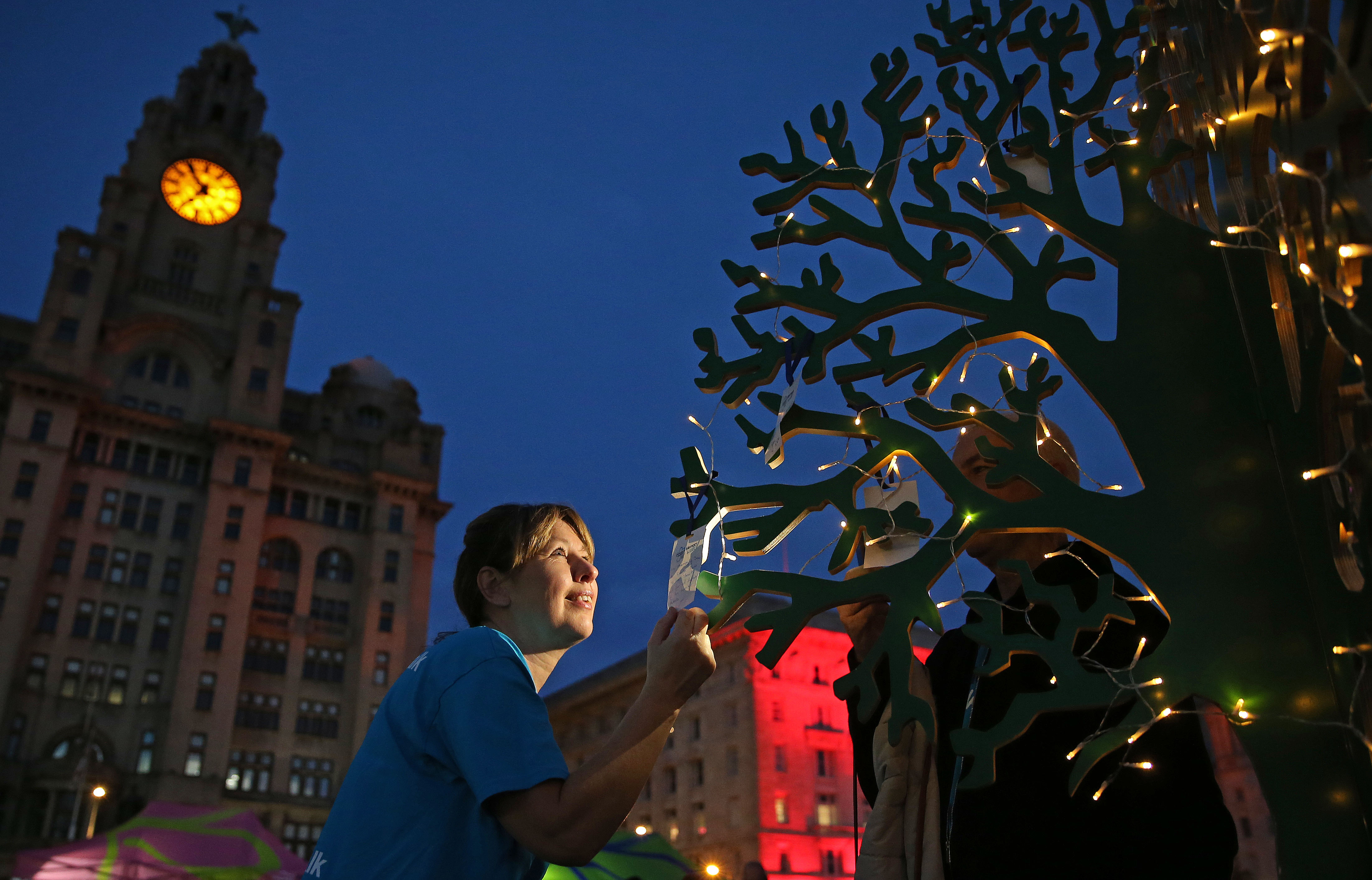A tide of more than 2,000 walkers danced in the dark and united against dementia in Liverpool’s first-ever Memory Walk held at night-time.
It was a case of glow, glow, quick, quick glow, with glow sticks to wave and glasses to wear coupled with a sound-track of greatest hits welcoming walkers.
Wearing blue Alzheimer’s Society t-shirts, supporters went on a 5.5km route around the riverside taking in Albert Dock, with Wapping, Queens Branch and Brunswick docks.
Sandra Holmes (53) of Woolton, Liverpool, walked with husband Stephen (57), their daughter Sian (27) and son Daniel (23), for her dad James Wilding, who lived with dementia for a decade: “He was diagnosed with Alzheimer’s and vascular dementia, it’s a devastating illness, so cruel to see a bit taken from someone a little at a time, until there is nothing left. The impact dad’s illness has had on all of us is immense,” she said. “He loved football, dancing and going out, but lost everything. He got to the point where he needed help to wash, dress, to eat, and eventually was unable to even swallow. With family and friends Sandra decided to join people united against dementia and chose the first-ever night walk as ‘something different.”
“Liverpool waterfront is spectacular and I loved going past all the wonderful buildings with so many walkers,” she said. “It’s great to be together with everyone.”
Alzheimer’s Society raises money to support people living with dementia and discover new treatments, including funding a £260,000 research programme at the University of Liverpool.
Scientist Professor Jerry Turnbull and his team at the university are working to find a drug that could be used to prevent or slow down the development of Alzheimer’s.
“We are aiming to stop the whole process right at the beginning and to treat the major underlying cause for the first time rather than just the symptoms,” he said.
The team has discovered natural sugars based on the blood thinning drug heparin which can halt or slow the formation of amyloid plaques responsible for Alzheimer’s.
“At present there are no drugs that do this,” said Prof Turnbull. “We hope to be ready to apply to set up clinical trials by 2019 – these would possibly take five years to complete – so there is potential for approval of a new drug within 10 years.”
Steve Green, Alzheimer’s Society operations manager for Merseyside, said: “Dementia is set to be the 21st century’s biggest killer.
“Every pound raised will help us to create lasting change. We are committed to spending at least £150 million over the next decade on research.
“It is magnificent to see so many people united against dementia in Liverpool, determined to light the way to a better future,” he said.
“I would like to say a huge thank you to everyone. It’s been a very special night, in an amazing setting with lots of wonderful people united against dementia.”

